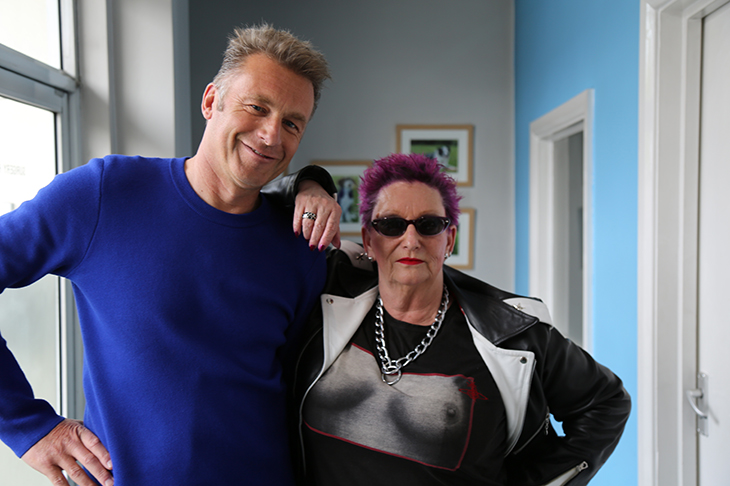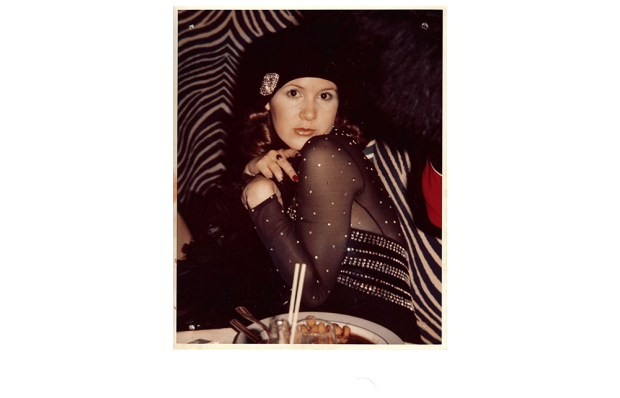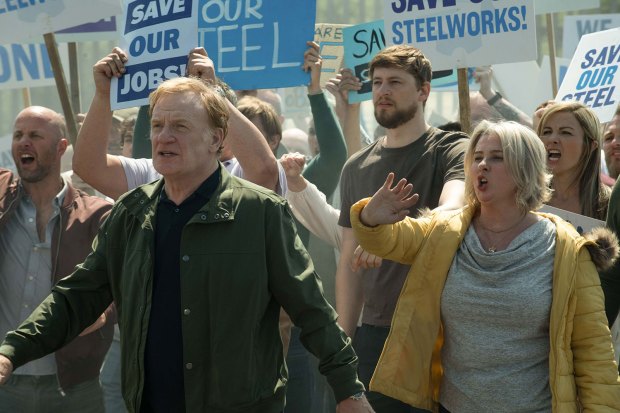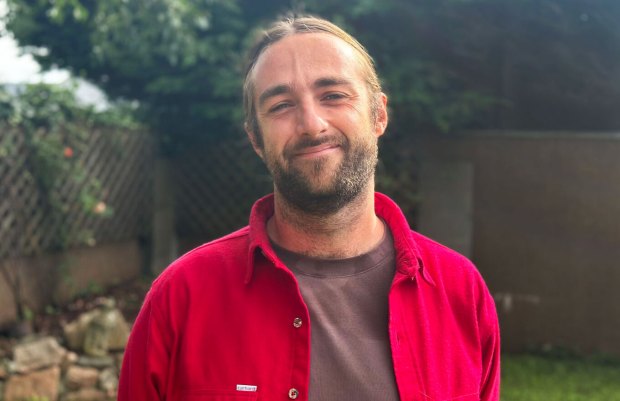For many people of a certain age (full disclosure: mine), punk has been a weirdly persistent presence. These days, we may not often be tempted to sit down with a glass of wine and an album by the Cortinas, Chelsea or Eater. We may even have belatedly realised that the most revolutionary record of 1977 — the year punk officially conquered Britain (and, incidentally, the country’s five bestselling singles were by Wings, David Soul, Julie Covington, Leo Sayer and David Soul again) — was Donna Summer’s ‘I Feel Love’. Nonetheless, the sight of Joe Strummer barking out a load of heartfelt if incomprehensible lyrics while the Clash thrash away in the foreground still somehow feels like a thrilling homecoming.
But what to make of the whole business 42 years on? After all, punk was famously for ‘the kids’. There are also few sights more melancholy than a bloke in his late fifties trying to tease out one last mohican from his reluctant locks. And anyway, can we legitimately feel nostalgia for a movement that so explicitly rejected nostalgia?
These were the questions tackled — or sometimes sidestepped — in BBC Four’s Chris Packham: Forever Punk (Friday). Even by male-fiftysomething standards, Packham’s claims for the importance of the movement to his youthful self tended to the extravagant. ‘I can’t say my life was saved by punk rock,’ he told us in an uncharacteristic moment of nuance, ‘but there’s a good chance that that was the case.’ As a more than usually angst-ridden teenager, he found in its music and fashion just the right blend of anger and friendliness, isolation and belonging. Approaching 60, he still has a large collection of the clothes with which he sought to outrage his hometown of Southampton — including, in a possible slight undermining of his rebel stance, a special punk jumper knitted for him by his mum.
Naturally, at the time, he was sure that such anti-establishment attitudes were with him for life. Yet the programme opened with him going to the Palace to receive a CBE. ‘So have I become the bastard I hated when I was a teenager?’ he asked poignantly.
As it transpired, the answer was no. But first, Packham went off to see how true some fellow punks have remained to their old ideals. Nick Petford was once in Southampton’s premier punk band Strate Jacket: an experience he rather implausibly maintained was key to his current job as vice-chancellor of the University of Northampton. Terry Chimes, the Clash’s original drummer, is now a smartly dressed chiropractor, and seems a bit puzzled as to why everyone was so cross back then. Pervez Bilgrami and Ausaf Abbas from the Asian band Alien Kulture were clearly among the crosspatches in 1977, but these days are doing very well in corporate recruitment and investment banking respectively. The way they see it, though, they haven’t so much sold out as wised up. ‘Punk didn’t offer solutions,’ said Abbas. ‘You have to remember that.’
Unfortunately, for most of the programme, neither did Packham. His big idea was that the heir to punk is Extinction Rebellion, but presumably he wasn’t suggesting that XR offers no solutions. Or that, as another interviewee pointed out about punk, it’s based on the charmingly misguided belief of young people that they can easily change the world.
Towards the end, Packham went to a punk festival in north London where lots of leather-jacketed oldies were unironically singing along to Sham 69’s ‘If the Kids Are United’. ‘I’m surrounded by old people,’ Packham noted accurately. ‘And the question is: have they moved on?’ The trouble with the programme was that for all its incidental pleasures (many, admittedly, nostalgic) we could never be certain whether Packham hoped they had or not.
Channel 4’s new drama Deadwater Fell (Friday) began like a promotional film for small-town Scottish life. People waved and smiled at each other as they got ready to watch a bike race go by. (‘Is that it?’ asked one primary-school boy when the two-second spectacle was over, speaking I think for bike-race watchers everywhere.) They then adjourned to a ceilidh for some wholesome cross-generational fun.
But, of course, this being a crime drama, there were soon signs of the dark forces at work beneath the place’s tranquil exterior. And that was before a lethal fire at the family home of the town’s GP and smiler-in-chief Tom Kendrick (David Tennant). Given that you may be reading this before the first episode goes out, I’d better say no more — except that a return to the programme’s early cheerfulness now seems improbable.
Deadwater Fell has undeniable resemblances to Broadchurch: crime in a close-knit setting; David Tennant, an investigating copper who knows both victims and suspects personally. Luckily, after Friday’s impressively assured start, it looks likely to resemble the first series of Broadchurch rather than the second.
Got something to add? Join the discussion and comment below.
Get 10 issues for just $10
Subscribe to The Spectator Australia today for the next 10 magazine issues, plus full online access, for just $10.
You might disagree with half of it, but you’ll enjoy reading all of it. Try your first month for free, then just $2 a week for the remainder of your first year.














Comments
Don't miss out
Join the conversation with other Spectator Australia readers. Subscribe to leave a comment.
SUBSCRIBEAlready a subscriber? Log in